The Complete Beginners’ Guide to Vaping


In this guide, we’ll introduce you to the wide world of vaping, and explain the terminology you’ll come across as you explore whether vaping is right for you.
This handy beginners’ guide answers the key questions that we get asked by smokers looking to start their vaping journey.
It will help you to make informed choices about the kind of kit that’s right for you; let you in on the key benefits of vaping; give you a brief intro into equipment maintenance, and much more.
By familiarising yourself with the basics, it will improve your chances that vaping will be a success story for you, and keep you away from cigarettes for good.
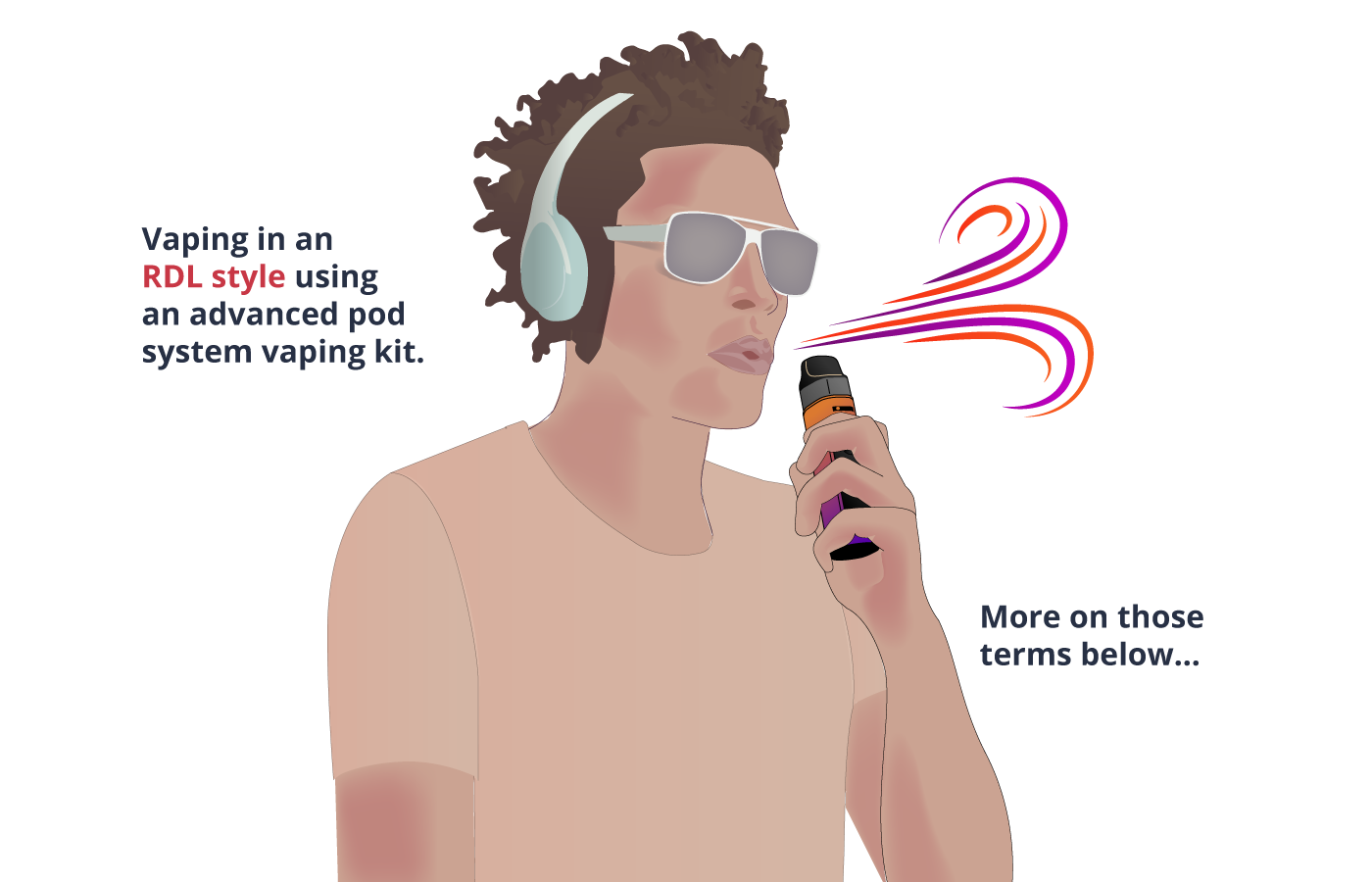
What is vaping?
The dictionary definition of vaping is...
"the action or practice of inhaling and exhaling vapour containing nicotine and/or flavouring produced by a device designed for this purpose"
The device used for vaping is an e-cigarette, which delivers the nicotine that smokers crave, without any combustion. Meaning that the vapour created is steam rather than smoke.
The term ‘e-cigarette’ has now largely been replaced by ‘vape’, ‘vape kit’, or ‘vape device’, as the equipment has become synonymous with the action, and should lose any association with actual cigarettes.
How long has vaping existed?
1963
1st nicotine free smokeless tobacco free cigarette
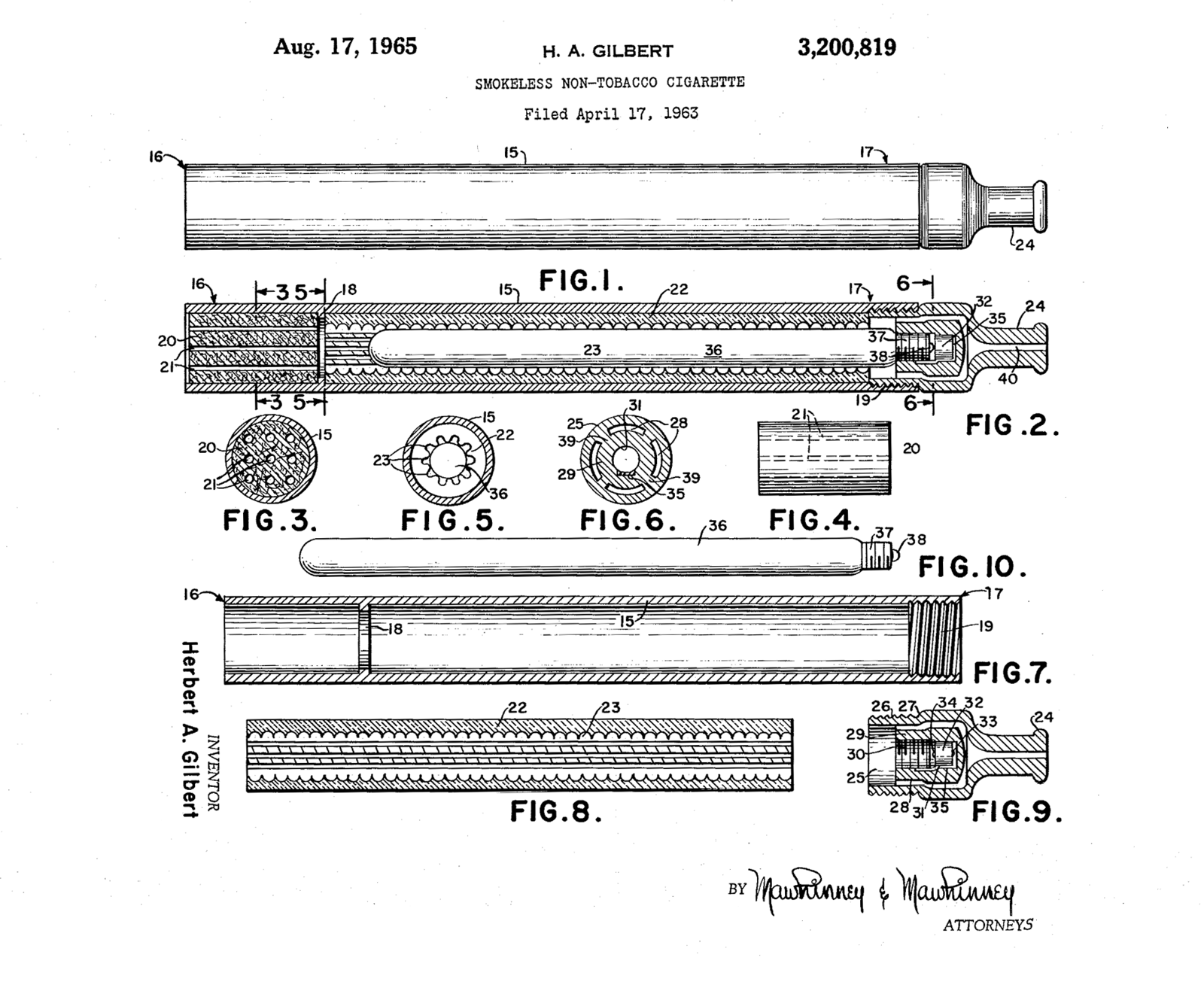
The world’s first patent for an electronic cigarette was filed in April 1963. The patent was for a battery powered heat source, and flavoured water, to create a smokeless tobacco free cigarette.
Unfortunately, his version of e-liquid was missing the crucial component of nicotine, so the patent expired before he could make it a success.
1979
‘Vaping’ first used as a term
The term ‘vaping’ was first used in 1979 by a doctor who had created a heat free version of a non-combustible nicotine delivery system - even though there was actually no vapour involved.
2000s
Gums and patches
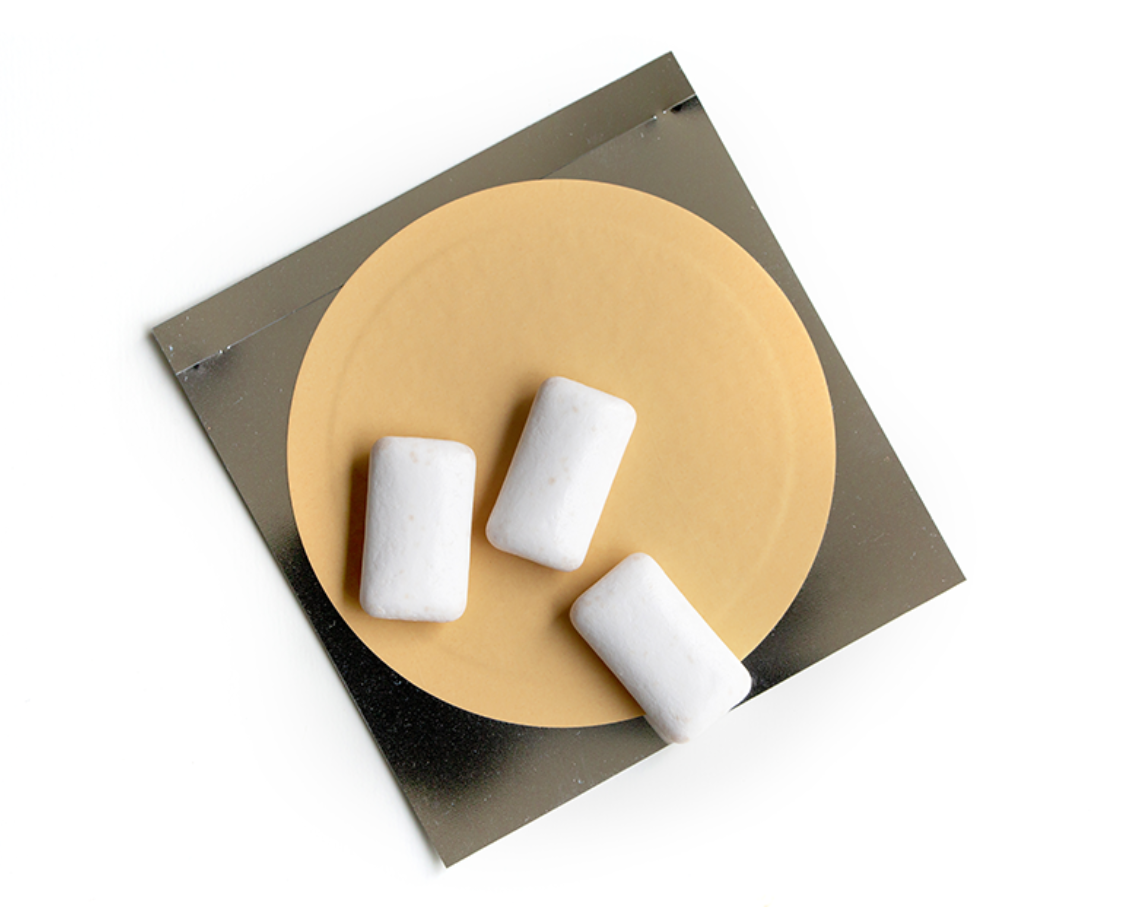
Up to the early 2000s, various tobacco companies tried to create their own ‘safe’ nicotine replacements, but ultimately stopped them looking like cigarettes as they didn’t want to publicly admit that actual cigarettes were unsafe. Hence we ended up with NRTs such as gums and patches.
2003
Cig-a-like
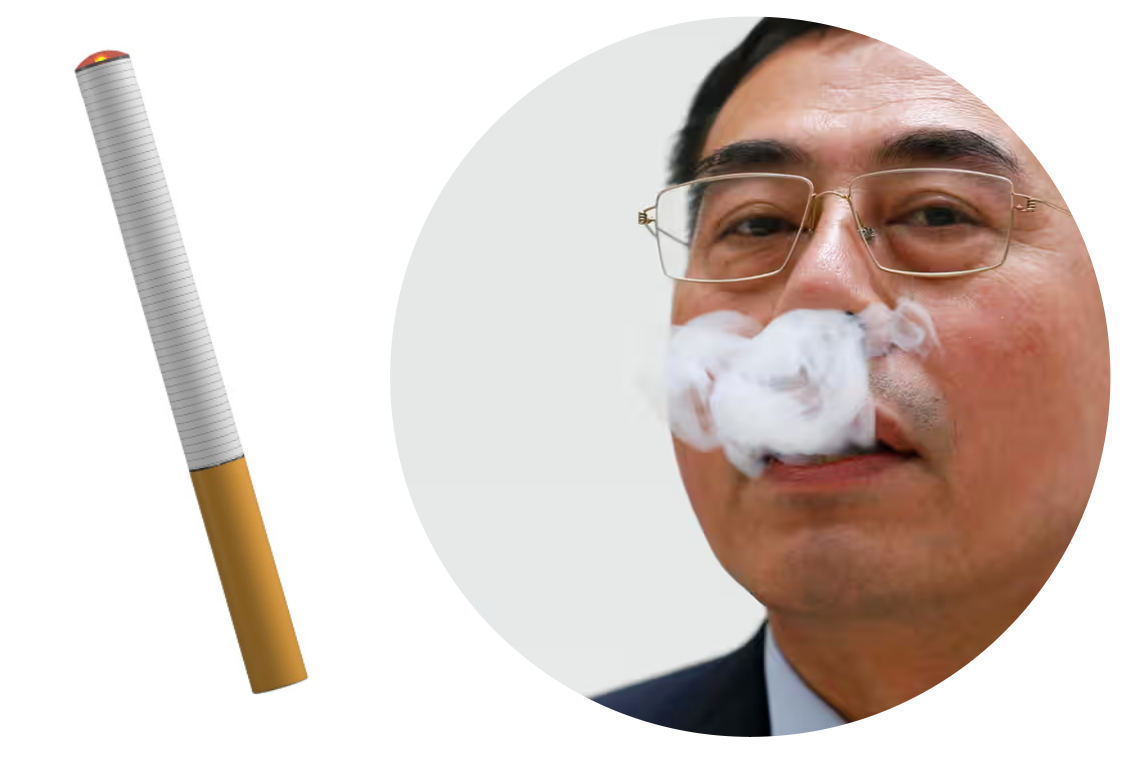
The breakthrough for e-cigarettes and vaping came in 2003 when a Chinese pharmacist (who was losing his father to smoking related illnesses), realised that satisfying nicotine cravings wasn’t enough. You also need to replace the hand-to-mouth fixation. And so the cig-a-like was created.
Present
Wide variety of vaping products
We’ve come a long way from the cig-a-like, but we have those early pioneers to thank for the vaping devices and e-liquids that we have today.
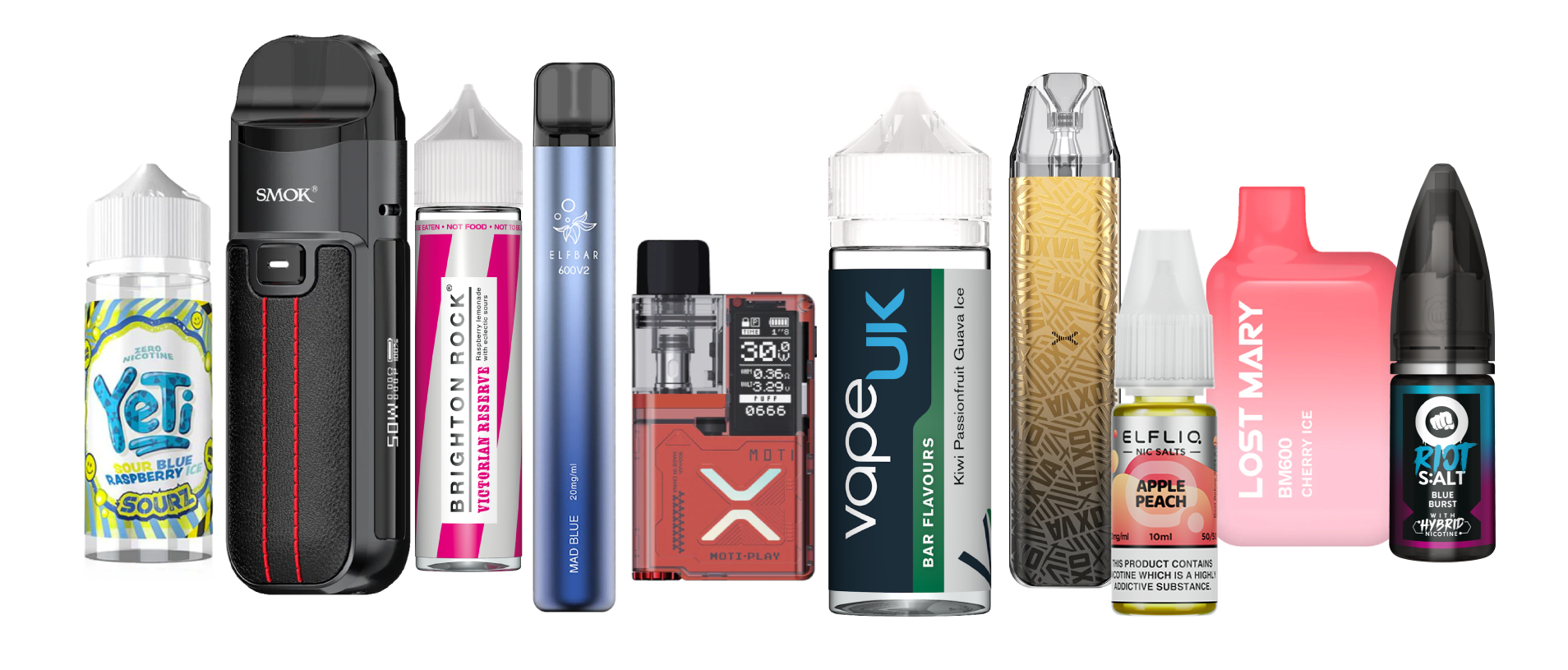
The basics of vaping
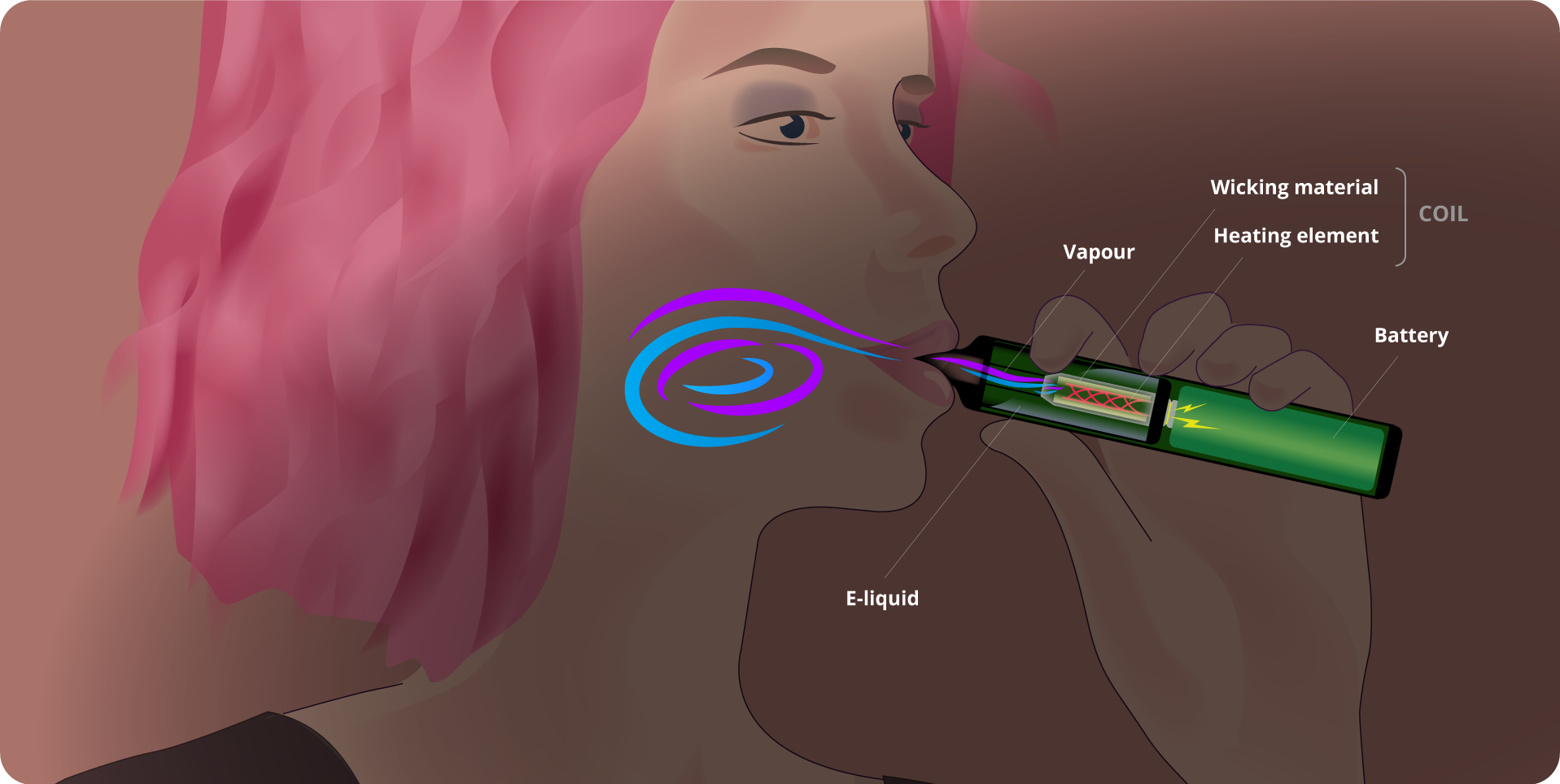
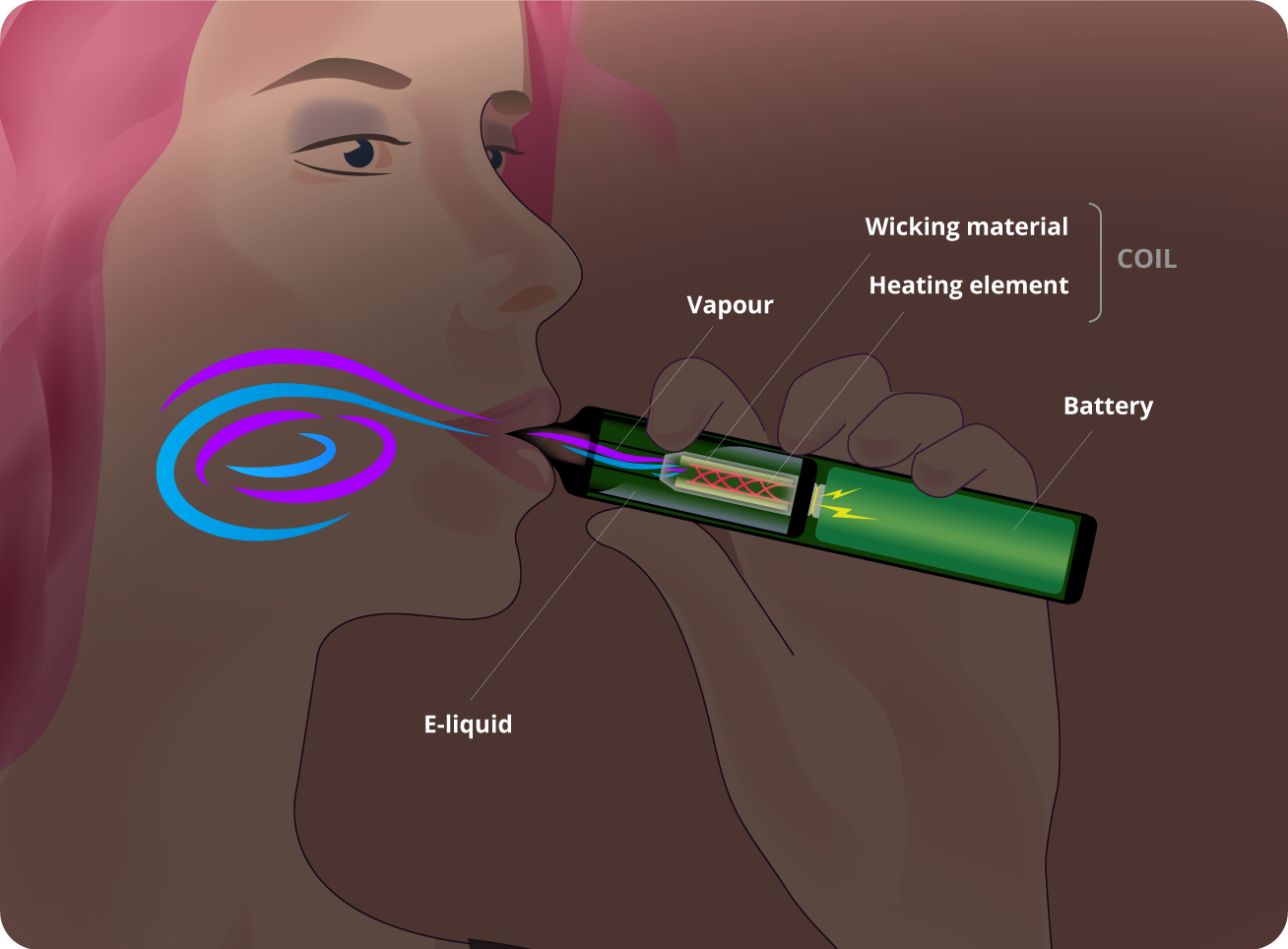
Vape kits, no matter which of their many forms, are handheld devices that are powered by a lithium-ion battery.
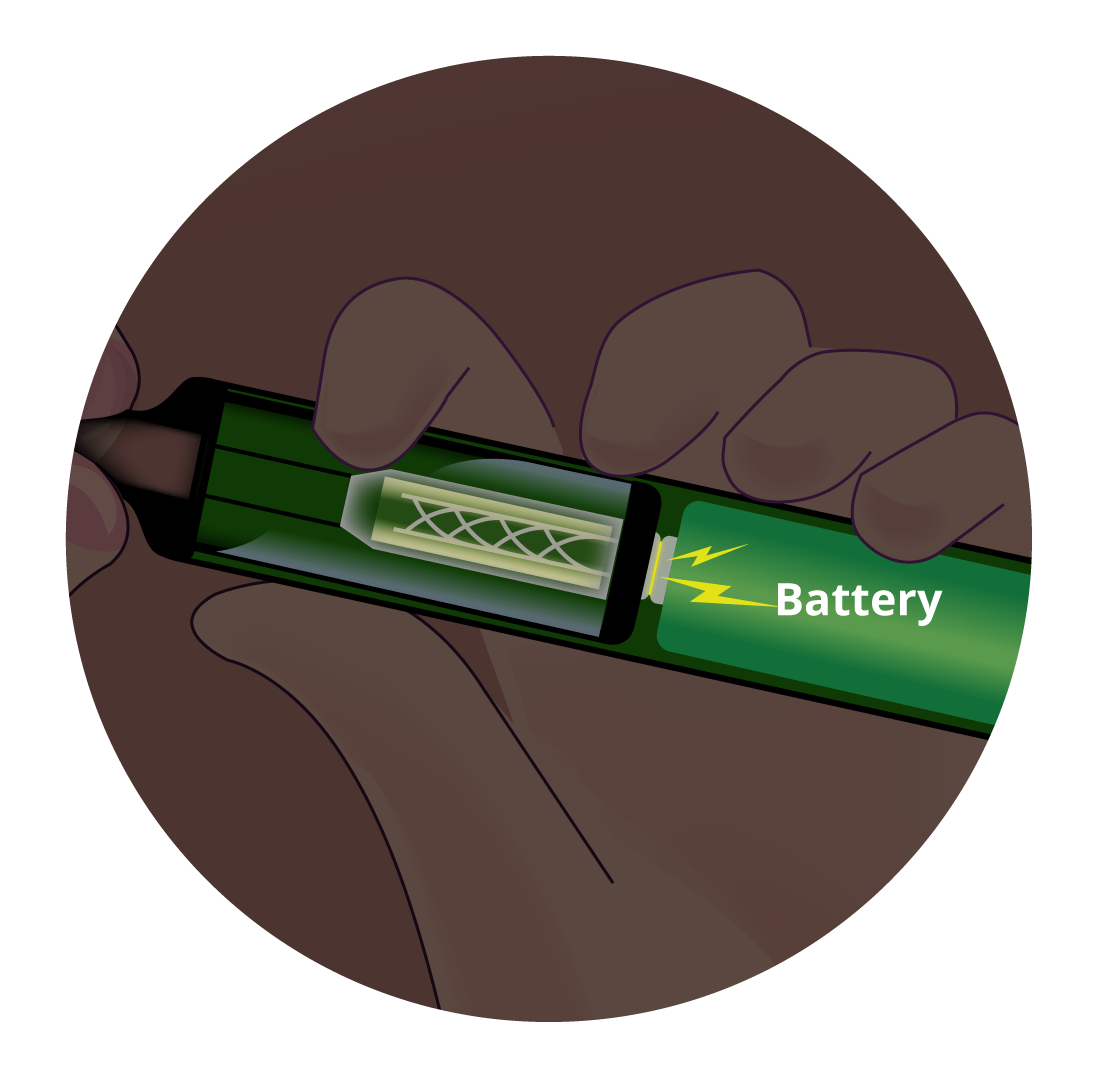
Power
When activated, the battery heats an element that surrounds an absorbent wicking material.
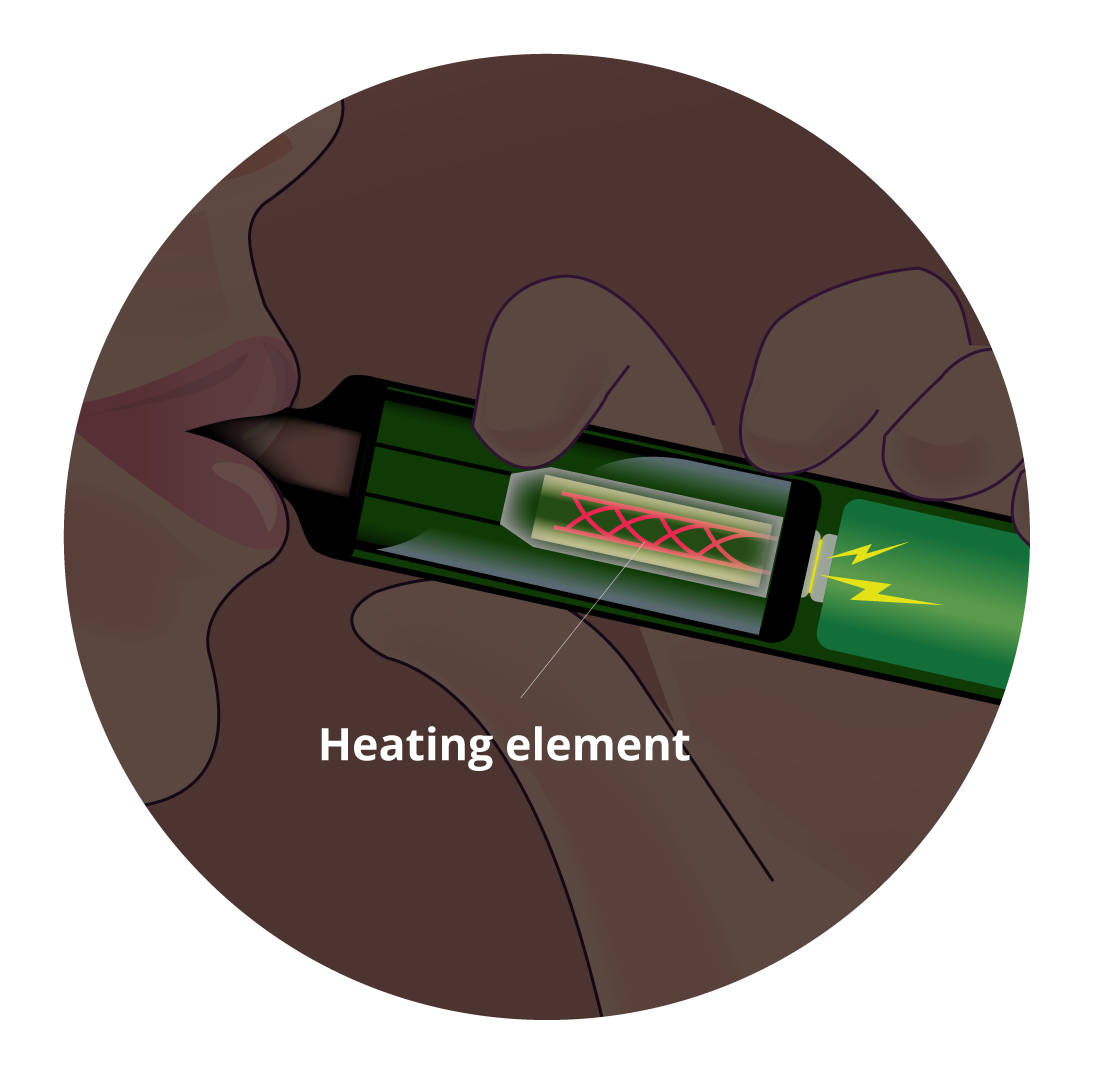
Heat
The wicking material is soaked with e-liquid. As that liquid evaporates under heat, it turns into vapour.
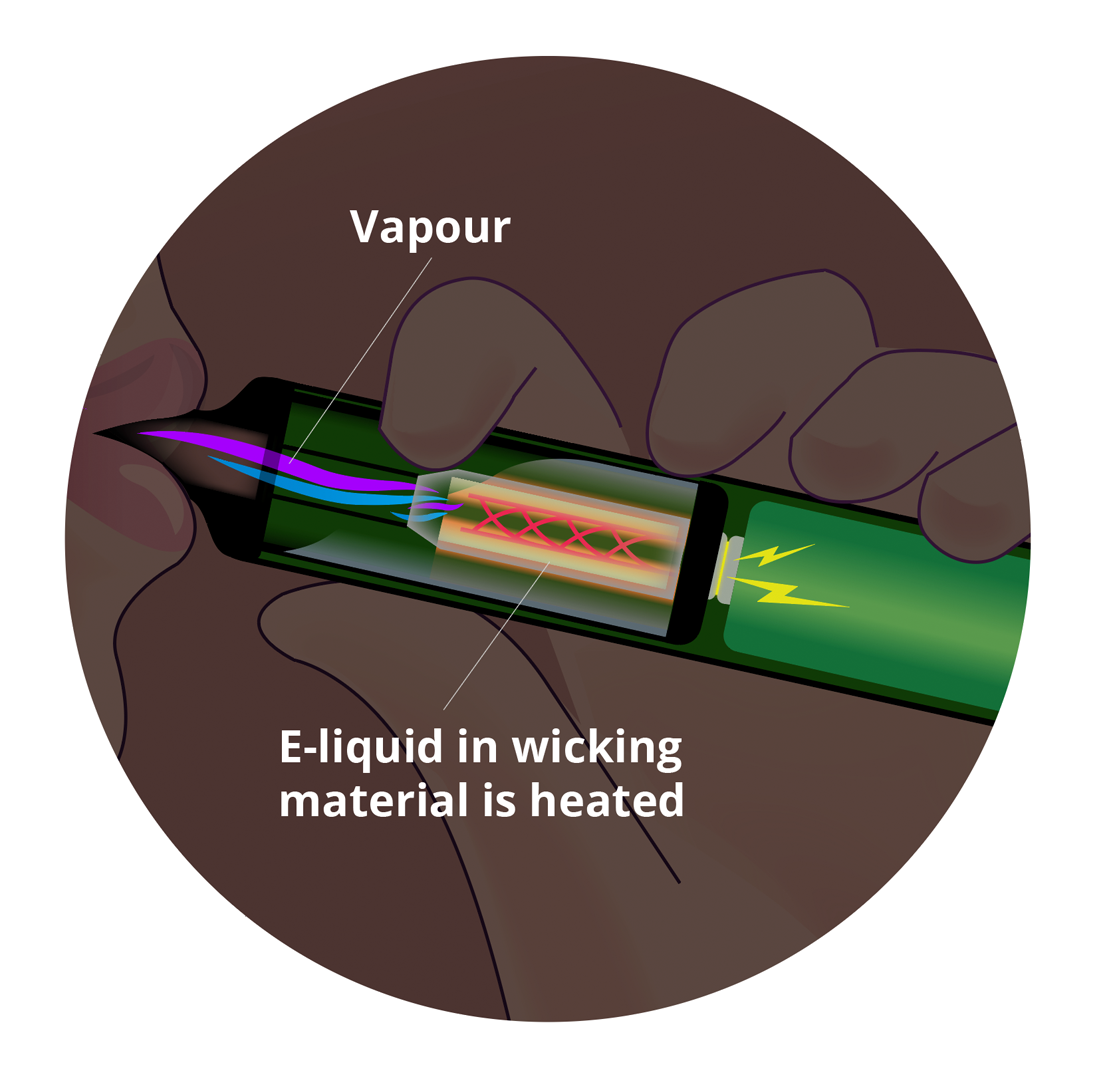
Vapour
The user inhales this vapour into their lungs, and exhales it in varying sized clouds.
The benefits of vaping
60% more effective

Research shows that vaping is at least 60% more effective in helping smokers quit than any of the other over-the-counter nicotine delivery systems, or quitting cold turkey.
95% safer

Vaping is proven to be at least 95% safer than smoking, and the health benefits from quitting smoking start after just 20 minutes.
After 2 days

After 2 days your sense of taste and smell will recover, and after a few months your lung function will be massively improved.
Within year 1

Within the first year, your risk of heart disease will be cut by roughly half, and your risk of stroke will be dramatically reduced.
Financial benefits

As for financial benefit, if you were a pack a day smoker, you’ll be over £1000 better off after a year as a vaper.
You'll smell better!

Vaping also tastes far better than cigarettes, and your clothes, breath, and fingers won’t smell terrible.
No passive smoking
Your friends and family will be safer as well, as it’s been proven that there is no passive risk from vaping.

Your first vape kit
This section will help you to make an informed choice about the vaping equipment that you’ll need to get started.
Deciding your vaping style
The way you vape is one of the first things to establish when you first try to switch from smoking to vaping.
MTL, DTL, and RDL refer to inhalation methods and are the terms used to describe the three most common vaping styles.
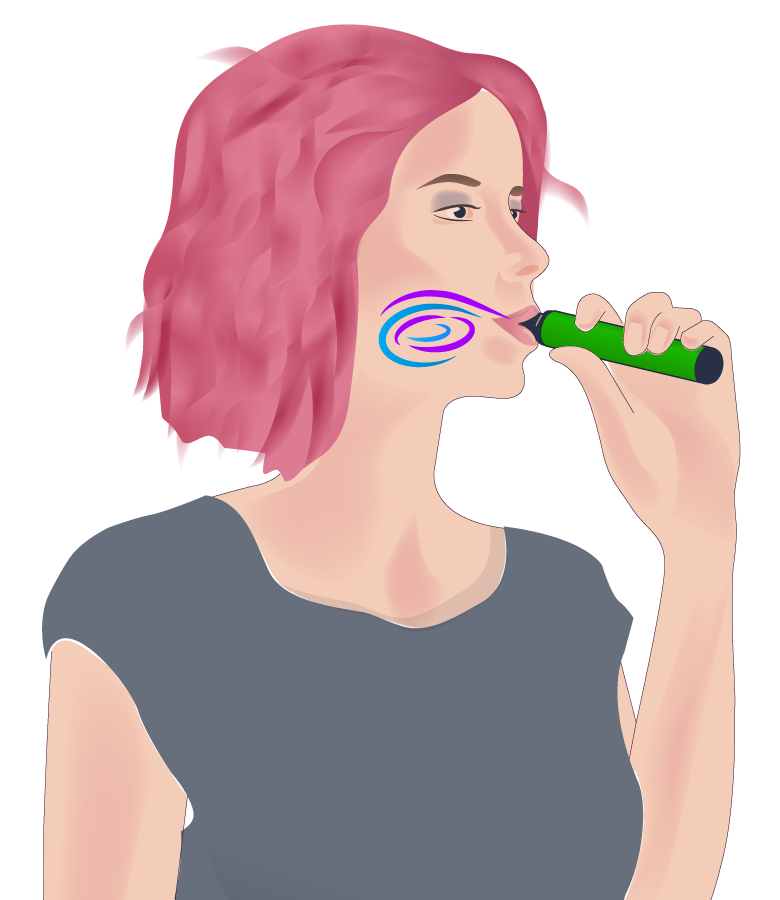
Mouth-to-lung (MTL) is the vaping style that most closely replicates smoking. Most people switching from smoking will start by MTL vaping as it feels the most natural way for smokers to inhale.
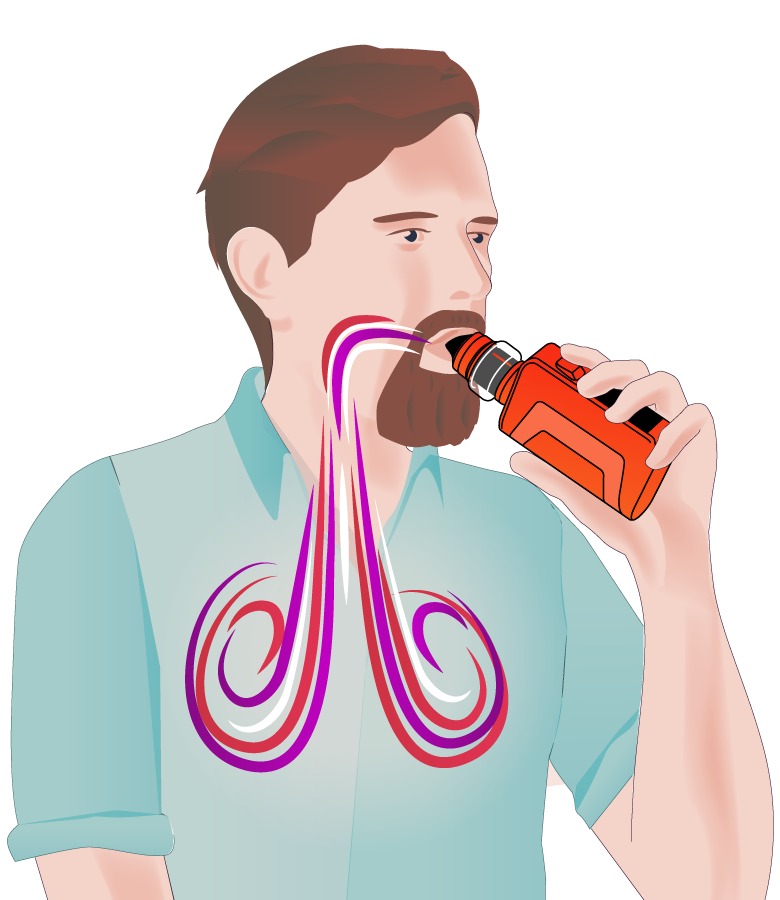
Direct-to-lung ( DTL) is most commonly employed by experienced vapers. For transitioning smokers it can feel like a strange way to inhale.
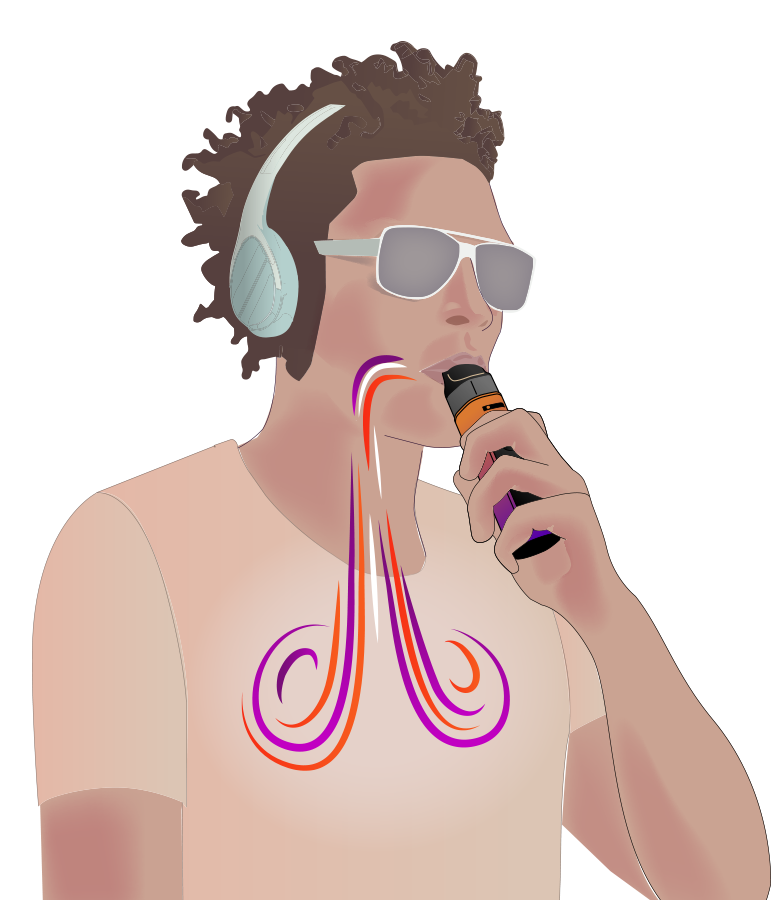
Restricted-direct-lung (RDL) is becoming increasingly popular amongst vapers who’ve been vaping for a while. It’s the midpoint between MTL and DTL, but the actual inhalation technique is closer to DTL.
For a more comprehensive look at vaping styles, check out our dedicated guide.
What vape kits are available?
When you’re new to vaping, it’s easy to become overwhelmed by the seemingly endless number of options available. However, there’s no need for alarm; the vast majority of vape kits can be broken down into six distinct categories, each with their own pros and cons.
Disposables, or single-use vape kits, are the most popular starting point for new vapers. They are ready to use straight from the box, and offer a simple and cheap way to give vaping a go.
They aren’t designed for long term use though, as they are extremely wasteful, and not cost effective if you’re replacing a smoking habit.
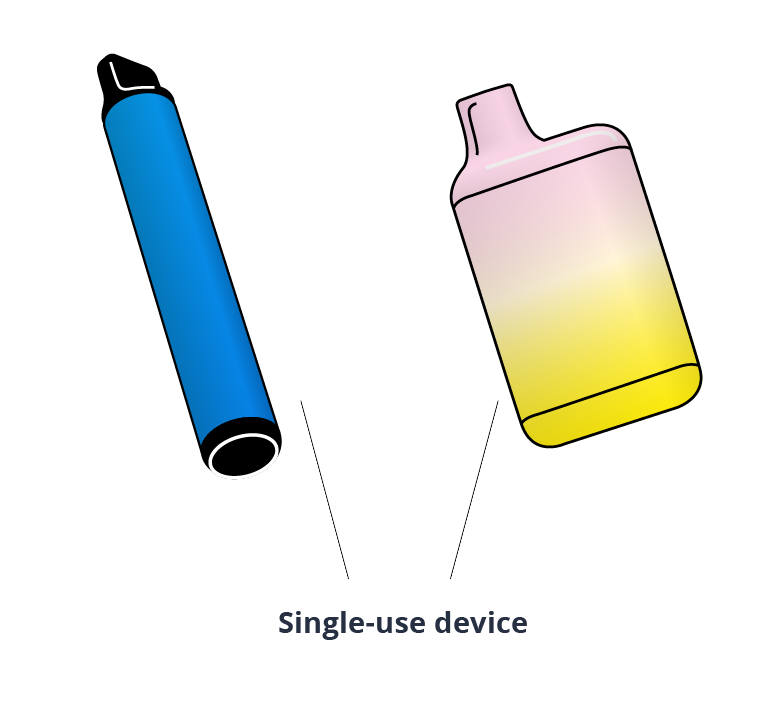
PROS
- Easy to use
- Wide choice of flavours
- No maintenance required
- Lowest upfront cost
CONS
- Not rechargeable
- Extremely wasteful
- Expensive to vape long term
- Poor options for proper disposal
Prefilled pod vape kits offer a rechargeable alternative to disposables, to reduce waste and ongoing cost. They are super simple to use, and you only need to replace the pod when it is empty of e-liquid.
The battery can be recharged via USB, and the pod comes with a built-in coil, so there is no maintenance.
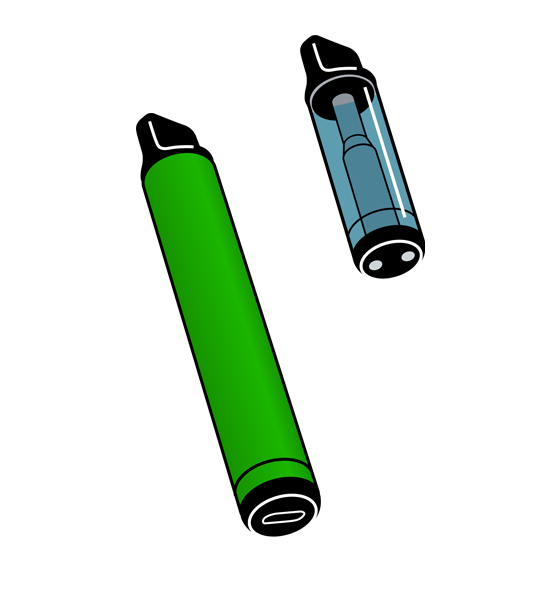
PROS
- Easy to use
- Low upfront cost
- No maintenance required
- Less wasteful than disposables
CONS
- Pre-filled pods can have a shorter lifespan
- Short battery life can require frequent charging
- Difficult to tell when the e-liquid is getting low
- Can be a bit flimsy
Refillable pod vape kits allow you to choose your own e-liquid, rather than being tied to the flavours offered by single-use vapes, or prefilled pod kits. They are simple to use, compact, and efficient.
Refillable pods either have removable coils, or built-in coils. There is less material waste from removable coil pods, but they do require some extra maintenance, so take that into consideration when making your choice.
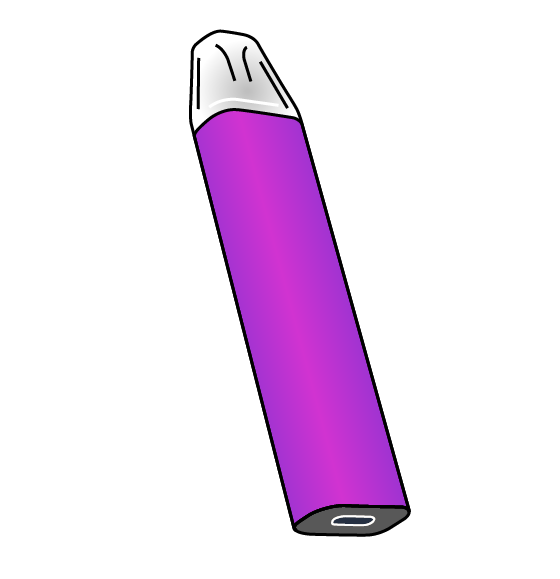
PROS
- Widest selection of choice
- Choose your own MTL e-liquid
- Very little complexity
- Low ongoing cost
CONS
- Short battery life can require frequent charging
- Some maintenance required with removable coil option
- More material waste with built-in coil option
Starter vape kits offer fantastic ongoing value, and even less waste, while still being pretty straightforward. They usually look very similar to the classic vape kit pen shape, with an e-liquid tank sitting on top of a battery, and a cigarette butt-shaped mouthpiece.
You will likely get adjustable airflow on a starter vape kit, meaning you can also give RDL vaping a go. The only consumable (apart from the e-liquid) is the coil, so you’ll have to learn how to properly coil prime.
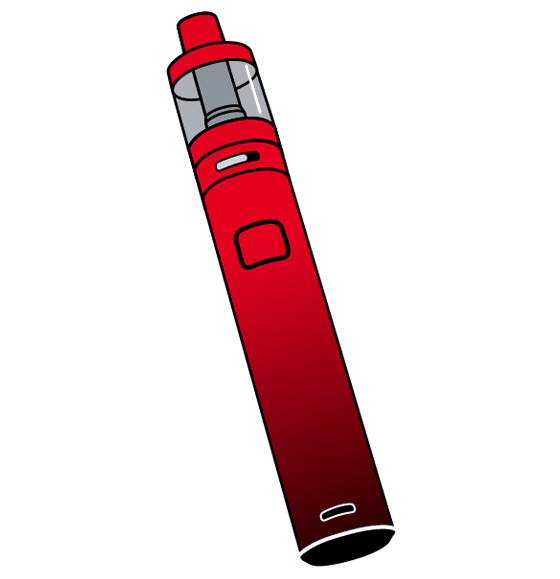
PROS
- Fantastic ongoing value
- Very little material waste
- Low complexity
- Allow you to try other vaping styles
CONS
- Less choice in style and design
- Fewer brand options
- Moderate maintenance required
Advanced pod systems are by far the most versatile of all the vape kits. They can handle every vaping style, meaning you can advance through your vaping journey without needing to choose a new kit. They may look complex, but they’re actually only as complicated as you want them to be.
They come with state-of-the-art technology, but you can also just switch it on and get vaping. There are no built-in coil pod options at this level, so you’ll need to prime your own. Some knowledge of wattage, airflow and coil resistance is also handy to get the very best out of your vape kit.
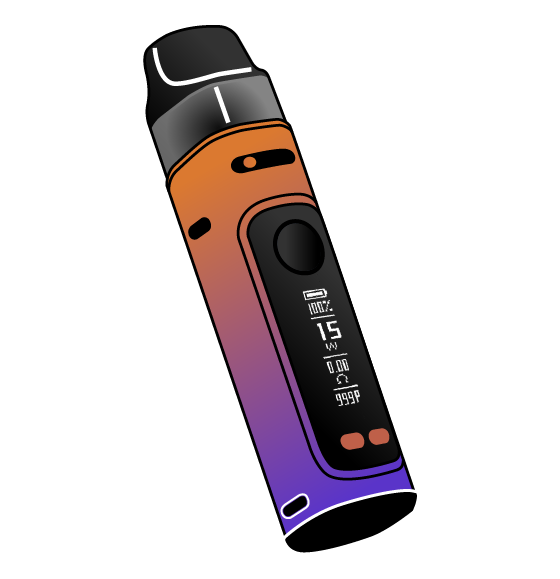
PROS
- Allows vapers to customise their experience
- Allows you to try all vaping styles
- Feels less like smoking
- More robust design and construction
CONS
- Higher e-liquid consumption
- Moderate maintenance required
- Higher upfront expenditure
Sub-ohm box kits are generally preferred by experienced vapers who want to produce big clouds, and no longer need much (or any) nicotine. They are more expensive to purchase and maintain, and require wider knowledge of resistance, airflow, and wattage to deliver the best experience.
They aren’t suited to MTL vaping, so if you’re reading this as a smoker looking to give vaping a try, you can discount this category immediately.
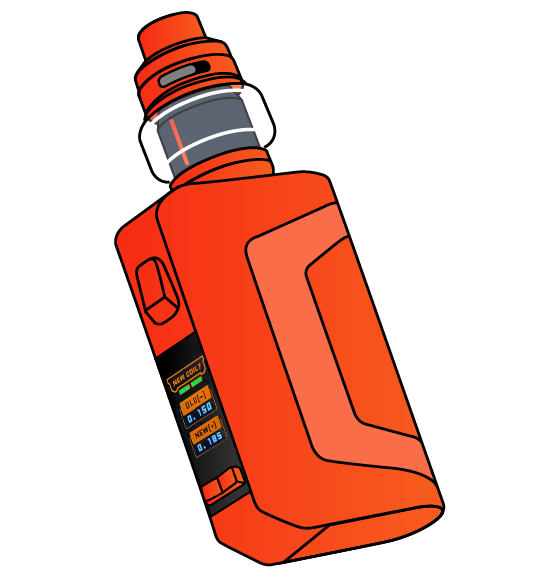
PROS
- Allow vapers to fully customise their experience
- Produces the biggest clouds
- Feels the least like smoking
- Most robust design and construction
CONS
- Highest e-liquid consumption
- Not at all discreet
- Complex setup and maintenance
- Highest upfront and ongoing expenditure
- Not suited to MTL vaping
What are the main components of vape kits?
There is a stupendous amount of variety when it comes to the size, shape, colour, and design of vape kits. However, despite their differences, they all contain the same four key components.

This is where you inhale your vapour from. The size of the mouthpiece varies, depending on the style of vaping that the kit is designed for.

This is where the e-liquid is held, and surrounds the coil. The law restricts this chamber to be a maximum of 2ml. For disposables, this is prefilled and non-refillable. For all pod and tank style vape kits, you can refill this component with your chosen vape juice.

This consists of a heating element that surrounds a wicking material. When the coil is heated by the battery, it heats up the e-liquid to create vapour.

This is a lithium-ion cell that powers the device and heats the coil. It either comes pre-charged in disposable devices, or is rechargeable via USB for all other kits.
Disposables
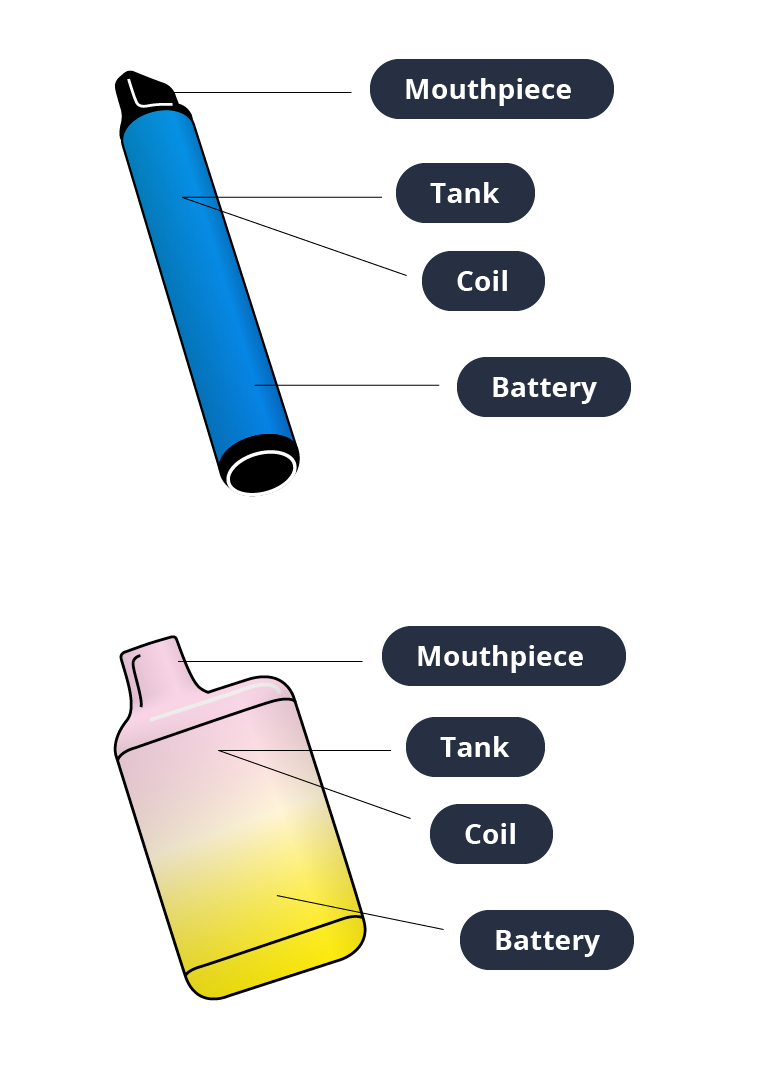
Prefilled pod vape kits
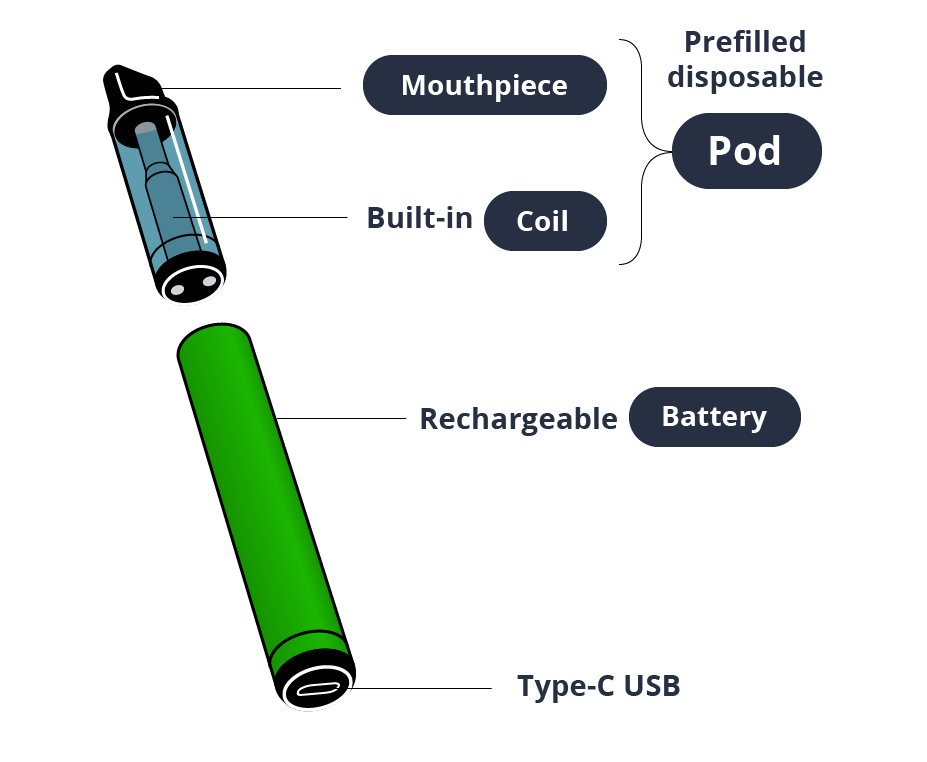
Refillable pod vape kits
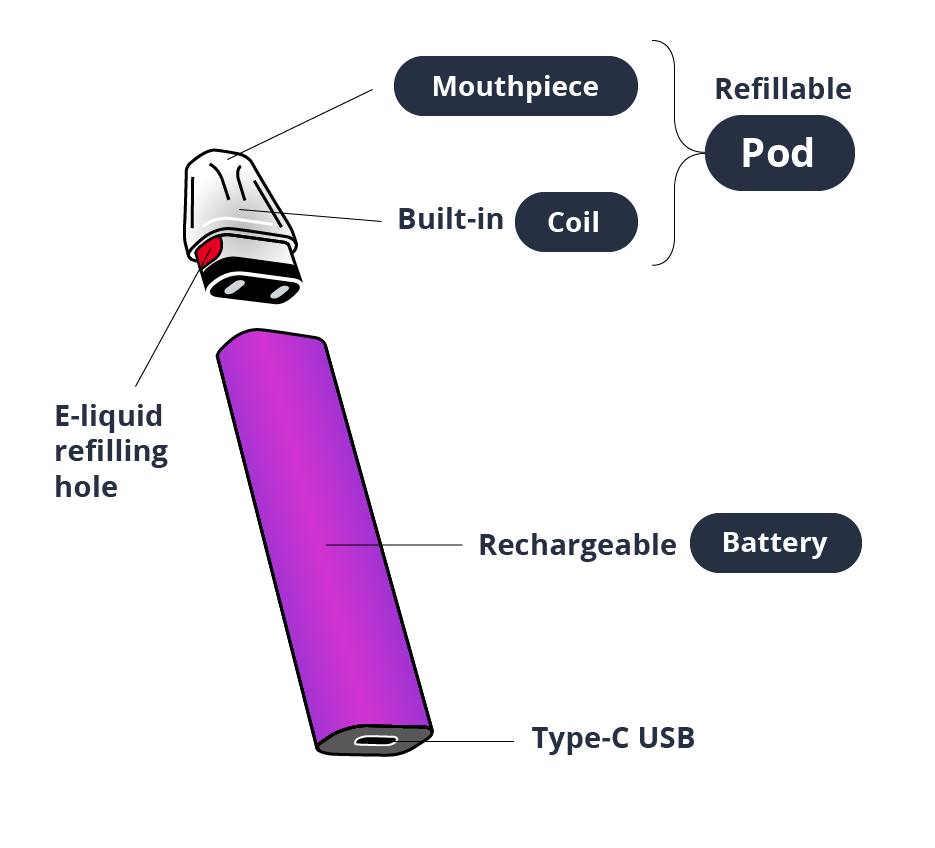
Starter vape kits
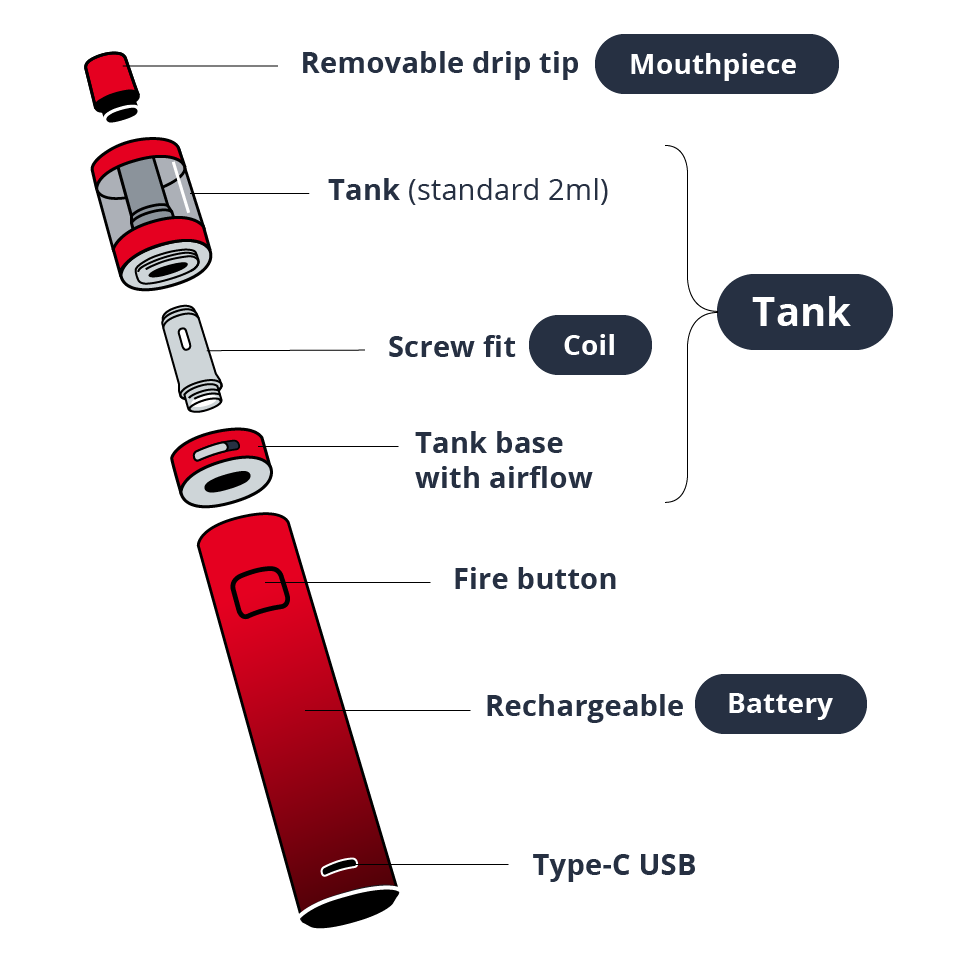
Advanced pod systems
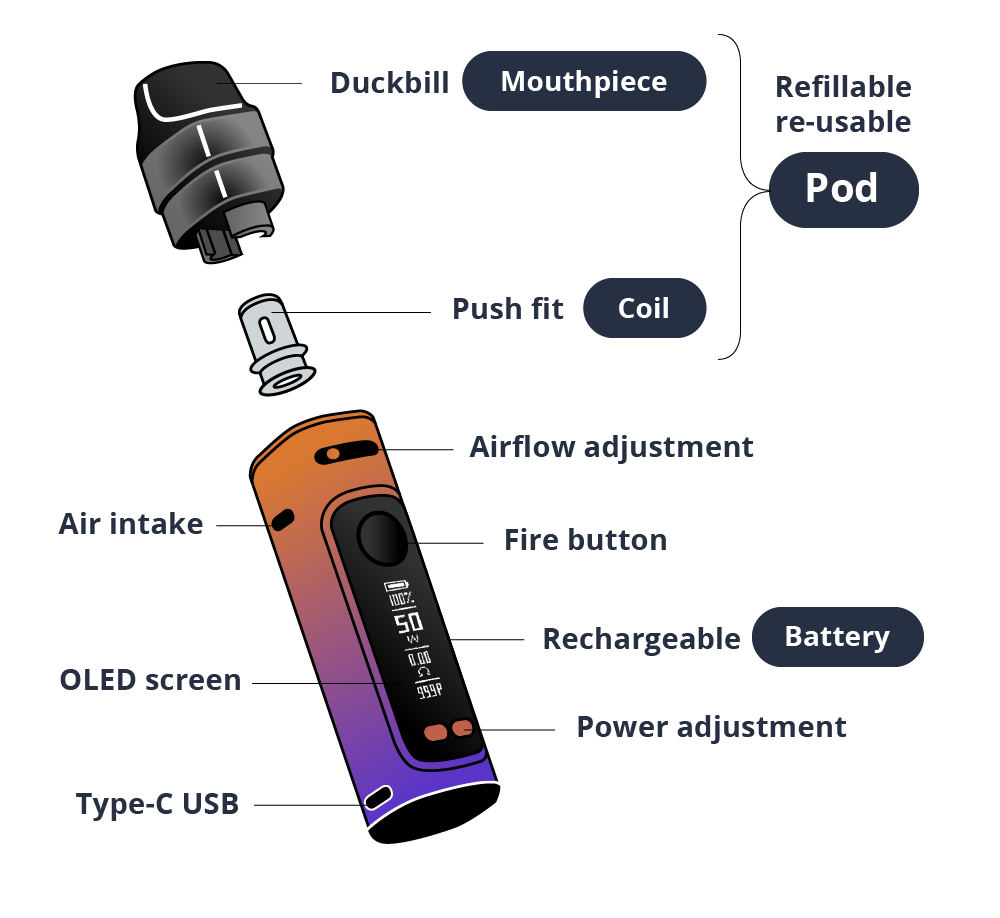
Sub-ohm box kits
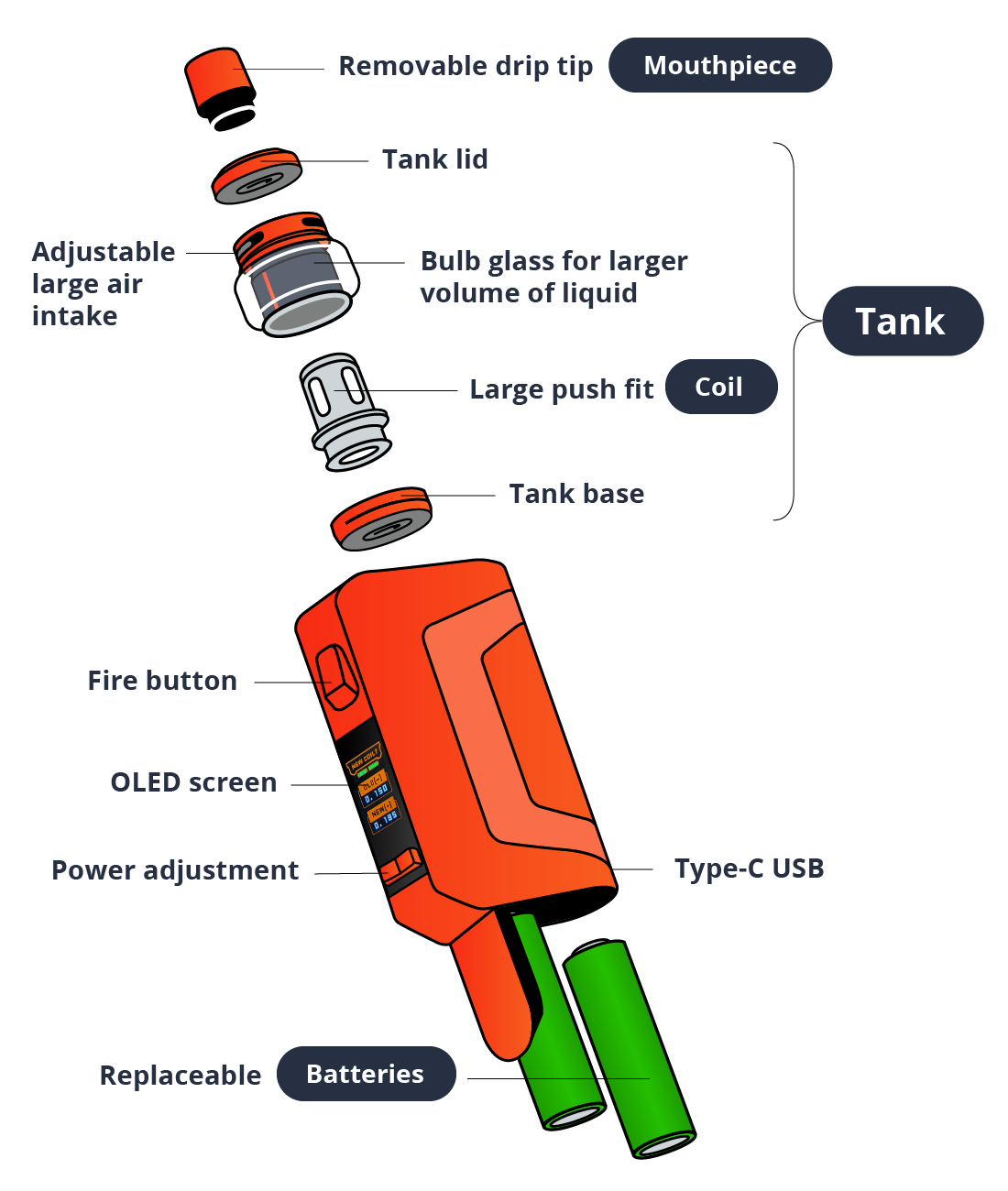
Vape kit maintenance
Earlier we mentioned that some vape kits require maintenance, in varying degrees depending on the style.
The most common maintenance requirement is coil priming. If you choose a vape kit that has a removable coil, you will need to properly prime the new one before you first fire the device.
If you opt for a starter vape kit, you will also need to periodically clean out your tank, especially if you’re swapping flavours. Residue of old e-liquid can affect the new juice in the tank, and may also clog the connections resulting in your vape kit not working properly.
It’s also worth using a cotton bud, or similar, to wipe the inside of your mouthpiece every few days (this applies to all refillable vape kits). Old e-liquid can build up inside, and they can also get clogged up with pocket fluff!
![]() The coil is the heart of your vape kit, so you want to ensure that it is working effectively, or your e-liquid will taste burnt and the coil won’t last very long. Don’t be put off though - coil priming is actually extremely simple. For instructions and tips, follow our dedicated guide.
The coil is the heart of your vape kit, so you want to ensure that it is working effectively, or your e-liquid will taste burnt and the coil won’t last very long. Don’t be put off though - coil priming is actually extremely simple. For instructions and tips, follow our dedicated guide.
Vaping and e-liquids
No matter which vape kit you opt for, you won’t get far without e-liquid. We’ll take you through what e-liquid is, and which e-liquid is best suited to each type of vape kit.
What is e-liquid?

All e-liquids are heated by your vape kit, and transformed into vapour that carries flavour and nicotine (if needed) as you inhale and exhale.
Some types of e-liquids create voluminous clouds of vapour; some deliver intense flavour; some produce the sharp throat hit that newly ex-smokers crave.There are plenty to choose from, so let’s help you to narrow it down.
What are the ingredients of e-liquid?
There are four core ingredients that can be found in (legitimate and regulated) e-liquid, and each one serves a key purpose.
Propylene Glycol (PG)
Propylene Glycol (PG) is a colourless and odourless liquid that acts as the carrier for the flavour of your chosen vape juice.
It has a thin consistency which can easily and quickly be absorbed by the wicking material in vape coils. It delivers a sharp throat hit, which is the sensation sought out by smokers looking to switch to vaping.
Vegetable Glycerine (VG)
Vegetable Glycerine (VG) is far more viscous than PG, and it is the key factor in the density of the ‘cloud’ production of your vape kit.
VG liquid has a natural sweetness, and it helps to soften the severity of the throat hit.
Nicotine
Nicotine is an optional ingredient, but it’s one that should definitely be included when you first transition from smoking.
Nicotine can be found in various strengths, and choosing the right strength should be based on your previous smoking habit, and the ferocity of your cravings.
Too little nicotine can leave you unsatisfied, and thinking that vaping isn’t right for you. Too much can make you dizzy, light headed, or even nauseous.
Flavourings
Flavourings are the ingredient that keeps us vapers coming back for more. The perfect flavour will make you wonder why you didn’t try vaping years ago.
In premium e-liquids, the flavourings will be food-grade, and won’t contain any nasty additives like caffeine or taurine.
E-liquid innovation has evolved so far in recent years that you’d be hard pressed not to find a flavour that you love.
What e-liquid types are there?
There are three types of e-liquid, each with their own pros and cons depending on your vaping style, and what you want to get out of your vaping experience.
Nic salts e-liquids
Nicotine salt e-liquid (often referred to as nic salts) are by far the most popular with new vapers. The nicotine they contain is derived directly from the natural nicotine salt found in tobacco leaves.
The reason transitioning smokers favour them is that they can deliver higher doses of nicotine with a smoother throat hit. Nic salts also have a fast absorption rate, so your cravings are satisfied quickly.
They come in 10ml bottles with a maximum nicotine strength of 20mg, and a minimum of around 5mg. This means you can wean yourself off nicotine gradually, as and when your cravings subside.
Freebase e-liquids
Freebase e-liquid is the classic vape juice that has been around since vaping began. The throat hit from freebase nicotine is harsher than nic salts, which makes it feel more similar to the hit you get from a cigarette.
They also come in 10ml bottles, as per the TPD regulations for e-liquids that contain nicotine. The maximum nicotine strength is 18mg, and they drop in several increments all the way down to nicotine-free, so you can accurately tailor the nicotine to your craving level.
Shortfill e-liquids
Shortfill e-liquids come in larger volumes - usually 50ml or 100ml - and the vape juice is nicotine free.
The bottles are larger than the volume of liquid, which leaves room if you want to add a nic shot or two to achieve your desired nicotine strength.
Nicotine Shots come in various strengths and numerous nicotine types, such as Nicotine Salts and Freebase Nicotine.
Which e-liquid should I choose?
To help you decide which style of e-liquid to go for, we’ve outline their key characteristics and limitations:

Used in: Disposables and prefilled pod kits
Suitable for: Refillable pod vape kits and starter vape kits
Best for: Newly transitioning vapers who need high nicotine content, but prefer a smoother throat hit

Suitable for: Refillable pod vape kits and starter vape kits
Best for: Newly transitioning vapers who need high nicotine content, but prefer a sharper throat hit

Suitable for: Advanced pod systems and sub-ohm box kits
Best for: Advanced vapers and cloud chasers whose sub-ohm kits consume high volumes of vape juice
Pair with: Nic shot(s) if you still need to keep cravings under control
We're here to help you quit smoking for good
We hope that this introduction to vaping has given you enough information to start your vaping journey. We’re always on hand to answer any more questions you may have, and to offer helpful and honest advice. We pride ourselves on being responsible vaping advocates, and we only supply high quality TPD compliant vaping products. Please get in touch if you have any queries on switching smoking for vaping.










